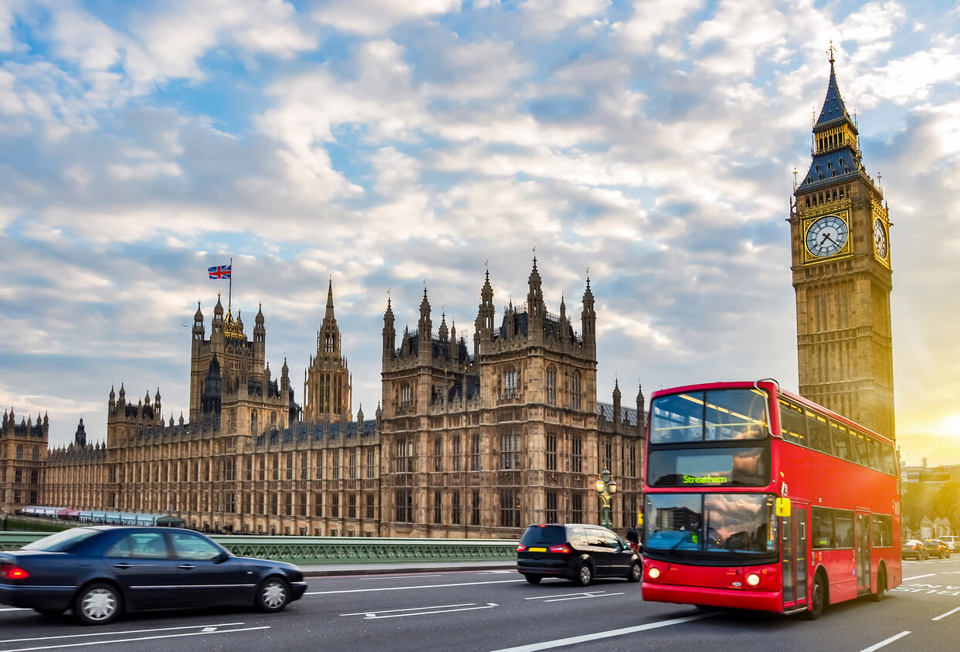Candidates for the London Mayoral election have put the environment centre-stage as they target air quality in the capital ahead of the vote on May 5.
Pedestrianising major London thoroughfares, creating a larger Ultra Low Emission Zone (ULEZ), introducing a diesel scrappage scheme and a rush-hour ban on trucks are among a range of policies aimed at reducing harmful emissions.
Labour candidate Sadiq Khan said: “Almost 10,000 Londoners die prematurely each year, because of air so filthy it is actually illegal. I want to be the mayor who makes London one of the world’s greenest cities.”
Khan advocates expanding the ULEZ, introducing a diesel vehicle scrappage scheme and pedestrianising Oxford Street.
However, he is not alone in putting forward a green vision for the capital. Liberal Democrat mayoral candidate Caroline Pidgeon has called for a rush-hour lorry ban and backed current London Mayor Boris Johnson’s plans to mandate additional passenger-side cab windows for all HGVs operating in the capital.
She said: “We’re looking at changing the nature of London’s roads, because too many cyclists are being killed – and pedestrians too.
“I want to make mornings and evenings a more pleasant environment for those vulnerable road users, and this means banning lorries from our roads at these times.”
The message was the same from the Green candidate Sian Berry, who said pollution from vehicles in London is comparable to the deadly smogs created by coal fires 60 years ago.
“If I am elected mayor, I will immediately exclude the most polluting cars, vans and lorries from central London and speed up the switchover to make all new buses and taxis zero-emission.”
Veteran green campaigner and Conservative candidate Zac Goldsmith also wants the current ULEZ plans “improved” and the introduction of zero-emission buses and taxis brought forward.
His manifesto pledges also include an aim to provide London with the power to control vehicle excise duty (VED).
“Too many Londoners have their lives cut short by our polluted air,” he said. “As mayor, I will make cleaning up our air an absolute priority. My action plan for Greater London will put in a concrete, costed, coherent strategy to drive a clean air revolution without unduly penalising local residents and businesses.”
There are already plans in place to make all new London taxis zero-emission from 2018 and to increase the number of hybrid-electric buses ahead of the introduction of the ULEZ in 2020.
However, green campaigners want London to follow the example of other European cities such as Paris, Warsaw and Madrid, which have banned HGVs from central areas.
The Freight Transport Association (FTA) has urged candidates to avoid ‘simplistic’ blanket bans, claiming such a policy would massively increase the cost of doing business in London.
“Banning lorries at peak times makes no sense,” said Christopher Snelling, head of national and regional policy at the FTA.
“Deliveries still need to be made, so a medium-sized HGV would be replaced by 10 vans, with increased emissions, congestion, cost and potential injuries to vulnerable road users.
“We need to focus on all aspects of road use to improve safety and pollution for everyone.”
The latest polling from YouGov has revealed Sadiq Khan has a seven-percentage point lead over Zac Goldsmith, with both contenders increasing their share of the vote by 1 ppt since January, to 32% and 25% respectively. Almost a quarter (23%) of voters said they were still undecided.
Housing and transport are consistently seen as the top priorities for the mayor and city government, chosen by 67% and 51% respectively. Health (35%), policing (31%) and economic development and regeneration (26%) are seen as the next greatest priorities.
Twelve candidates are hoping to succeed Boris Johnson as mayor of London in the election on May 5. As well as representatives of the Conservative, Labour, Green and Liberal Democrat Parties, the list includes the former MP George Galloway and the son of a Polish aristocrat.




















Login to comment
Comments
No comments have been made yet.